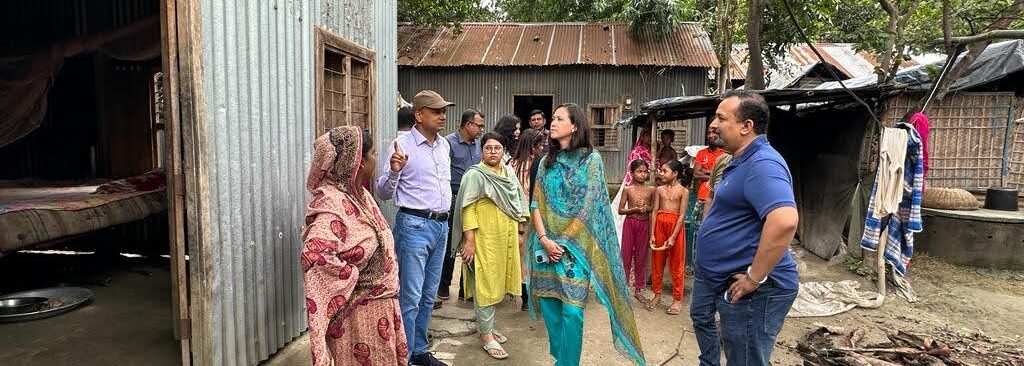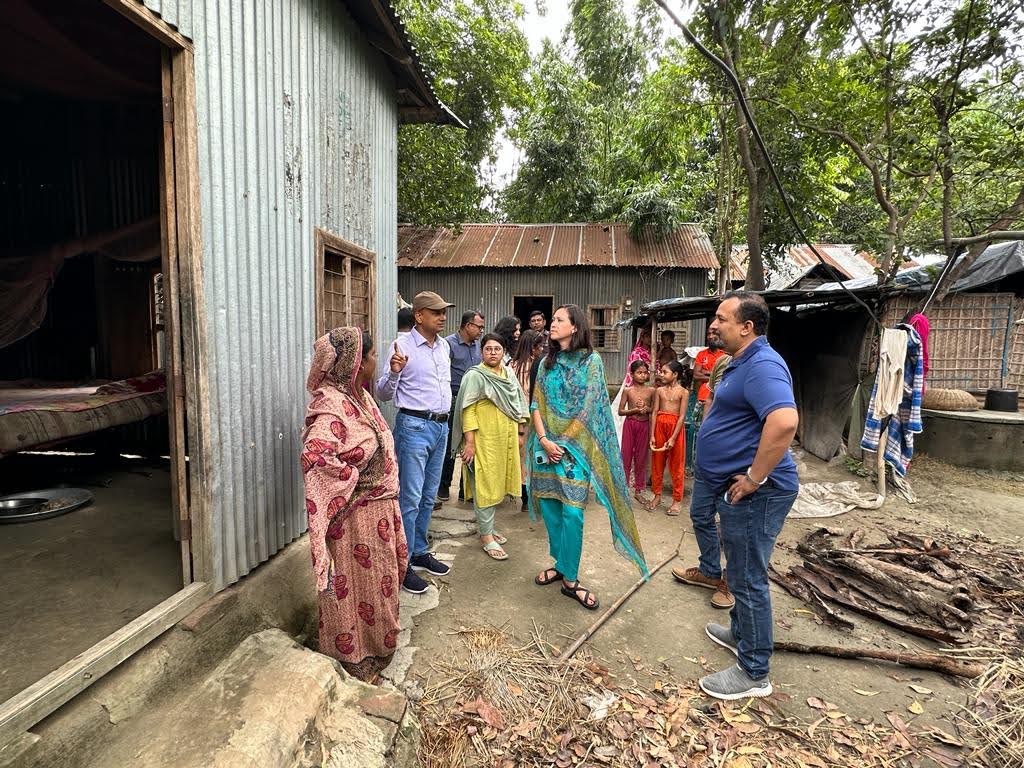Published: 10/31/2024
In the inaugural Global Health Research Spotlight lecture, Jade Benjamin-Chung discussed her research which shows how concrete floors show great promise for maternal and child health in rural Bangladesh.
By Neha Mukherjee, Global Health Media Fellow
Pilot results show that a home’s flooring could be a key contributor to improved maternal and children’s health in low-resource settings, according to Jade Benjamin-Chung, PhD MPH, who is an Assistant Professor at Stanford University in the Department of Epidemiology and Population Health.

In a talk given at Stanford University on October 28, Benjamin-Chung discussed her ongoing research to reduce pathogen spread and improve maternal mental health by replacing soil floors with concrete in Sirajganj District homes in Bangladesh. This was the first Global Health Research Spotlight in an ongoing series to highlight Global Health work from Stanford researchers.
“There’s a lot of people who think about how to help do good engineering work to make sure a home is designed really well or that a home will stand up in disasters, but they’re not necessarily thinking about infectious diseases. So there’s a lack of connection across the board,” says Benjamin-Chung.
In Bangladesh, nearly two-thirds of rural homes have soil floors. Children who may be playing in and accidentally ingesting the soil are especially susceptible to the debilitating pathogens in the soil.
With pilot findings showing a reduction in these pathogens on concrete floors, Benjamin-Chung is now embarking on a randomized control trial with 800 households. This NIH-funded trial, called CRADLE, focuses on homes with pregnant women and will then track health outcomes in the child through the first two years of their life.
The trial will also focus on impacts to maternal quality of life, stress, and bandwidth. Initial findings show that women living in homes with soil flooring spend about an hour a day on floor maintenance.
“This is potentially an hour they could get back. So, we’re really excited to see if we can move the needle on this outcome,” says Benjamin-Chung. This could not only reduce maternal depression, but mothers spending less time cleaning the floors could also lead to increased stimulation for their children, according to Benjamin-Chung.
In a subset of study homes, the flooring in this intervention contains fly ash, which is locally available at markets in Bangladesh. Cement made with fly ash can be a less carbon-intensive alternative to traditional carbon. Yet, researchers are still investigating whether there is community buy-in for this type of flooring.
“We’re assessing acceptability, including the durability as well as the appearance of the floors,” said Benjamin-Chung.
While “acceptability” may present an important challenge, the study team has invested in community partnerships with local health clinics and health authorities to receive feedback and garner community support for interventions.
“We need to be more creative, and scientists and practitioners need to work together in thinking about solutions for health. And so this is a theme that runs through this work,” she said.
Jade Benjamin-Chung, PhD MPH is also a Chan Zuckerberg Biohub Investigator. She received her Ph.D. in Epidemiology and M.A. in Biostatistics from UC Berkeley.
Learn more
Learn more about Benjamin-Chung’s interdisciplinary work in this video.

